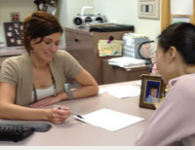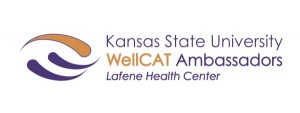As part of K-State’s comprehensive and proactive approach to encourage students to stay safe and healthy, K-State requires all students to complete the annual (July 1 – June 30) web based Alcohol and Sexual Assault Prevention Program (ASAP).

K-State’s ASAP uses the Think About It series of modules from Campus Clarity© to address alcohol and other drug use and sexual harassment and sexual violence prevention through interactive educational content and scenarios.
The ASAP program is designed to help students:
- Make healthy decisions.
- Know and understand state laws and K-State campus policies.
- Be aware of university community resources associated with these topics.
- Be aware of how to report concerning behavior.
- Learn how to safely intervene when suspicious or concerning behavior is observed.
There are four ASAP modules. Each module is updated annually and has content specifically designed for a particular student group:
- Undergraduate and graduate students (21 and younger) enrolled in their first term at KSU receive the “Think About It: Part 1” training.
- Undergraduate and graduate students (21 and younger) enrolled in terms two and beyond receive the “Think About It: Campus Save” training.
- Adult learner undergraduate students (22 and older) receive the “Think About It: Adult Learner” training.
- Graduate students (22 and older) receive the “Think About It: Graduate Student” training.

Since beginning this program in the fall of 2015, we have obtained powerful results that we can use to assist us in our programming efforts. The training includes surveys that ask many questions about perceptions, health behaviors and experiences with drugs, alcohol and sexual assault. We now have information on the health risks that affect our students and we can properly tailor our educational efforts to address these needs. Some of the more significant results are:
- 52% of K-State Students who are sexually active do NOT use a condom.
- 15% of returning K-State students (out of about 19,000) said they have had 10 or more drinks in one night.
- About 25% of K-State women said they have been afraid that their partner might abuse them physically or emotionally.
By looking at perceptions and experiences of our students, we are able to identify the areas that we need to focus on in order to enhance the health and safety. For example, about 40% of K-State students said they know of someone who has been sexually assaulted. About 45% of students said they feel that in most cases, sexual assault is a problem of miscommunication.
The Wildcat Wellness Coalition is a collaborative effort of many organizations on campus. The coalition’s mission is provide a formal and consistent forum for focusing wellness efforts in reaching the campus community. With the information obtained from the ASAP program, the Wellness Coalition can then focus on events and campaigns that exist to reduce sexual assault and risky behaviors. One programming effort the Wildcat Wellness Coalition has done in the past is partner with Union Program Council to put on alcohol free events for students on the weekends.
community. With the information obtained from the ASAP program, the Wellness Coalition can then focus on events and campaigns that exist to reduce sexual assault and risky behaviors. One programming effort the Wildcat Wellness Coalition has done in the past is partner with Union Program Council to put on alcohol free events for students on the weekends.
The WellCAT Ambassadors are a group of peer educators who are trained to present factual information to their fellow K-State students. These peer educators also collaborate with other organizations, put on health and wellness events and administer campaigns that work to enhance healthy behaviors. This organization bases their ideas on current health trends and statistics obtained from surveys  such as the ASAP program. One particular area of focus is on sexual health. The WellCAT Ambassadors give anywhere from 10-20 presentations per semester on sexual health and try to put on one big event per year, focusing on sexual health and the consequences of risky behaviors.
such as the ASAP program. One particular area of focus is on sexual health. The WellCAT Ambassadors give anywhere from 10-20 presentations per semester on sexual health and try to put on one big event per year, focusing on sexual health and the consequences of risky behaviors.
The ASAP training itself promotes a healthier and safer environment for everyone. It includes information on how to recognize, report, and safely intervene to prevent sexual violence. K-State students rate the training positively at 4.3 out of a 5-point scale with 5 being highest! We have received great feedback on the training, both positive and negative. We take this feedback very seriously as we want the absolute best and most effective program for our students.

Content Provided by: Lafene Health Center Director of Health Promotion Julie Gibbs